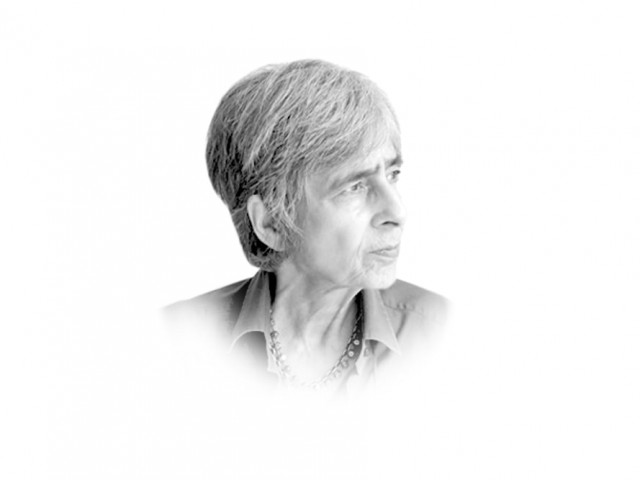Let us not forget
The army has been at the forefront of national affairs since the very beginning, no thanks to the political classes.

However, and whatever be the news that trickles down to us, we may be sure that its stranglehold on matters, national and international, has not appreciably weakened. It remains the largest, richest and most disciplined force in a nation that has shed both unity and discipline — and faith in itself.
We forget history, or we ignore it at our peril. The army has been at the forefront of national affairs since the very beginning. The civilian politicians who followed Jinnah were men of little substance and as early as 1949 had surrendered to the forces of intolerance and bigotry, hence the Objectives Resolution. In 1954, the civilian government invited in the commander-in-chief of the army, General Ayub Khan, to join its cabinet as defence minister. He held no gun to their head — the invitation was abjectly extended. And so the army entered politics, hand in hand with corruption and ineptitude, 57 years ago, in a country 64 years old.
In 1958, when Ayub took over with ease, there was no public outcry, in fact, the opposite. The people welcomed in the army men, tired of a series of incompetent unstable civilian governments (though not then riddled with corruption) and the generals settled in. Luckily for the civilian politicians, calamitous 1971 struck. Zulfikar Ali Bhutto, by interfering in the seniority tradition of appointing army chiefs, signed his own death warrant when he hand-picked Ziaul Haq. By 1977, the political forces in opposition were making all sorts of supplications to the army, asking the generals to do their job and come to the rescue of a flailing nation. When Bhutto was overthrown by Zia and his generals, there was much jubilation in the land — the idiotic professional ‘hailers’ and ‘welcomers’ had no idea what was in store for them or their country.
It is of little use repeating what is recognised — that the Zia years ‘turned’ not only the military mindset but that of the entire nation. Amongst the many threats Pakistan faces is this mindset, in and out of uniform, which, unless it can be redirected, will keep the nation bound as it is to the stake of intolerance, fully blinkered. With Zia gone, the army might was not depleted. It called the shots, arranged the political scenery throughout the 1990s when politicians in opposition supplicated the generals to step in and sort out chaos. When one did in 1999, after a prime minister blundered, the nation once again cheered it on. What has helped the army stick to its overriding position is the quality of the political classes it, itself, has brought to the fore. They have been and now very much are people largely scorned by the masses who have amassed fortunes at the cost of the country and who have never shown an ability to ‘rule,’ to predominate. Their mistakes and errors have been as glaring as those of their masters in khaki.
So, with civilian connivance, the military mind has adopted the worst of political traits (corruption, ineptitude, contempt for the people) and has wangled its way into owning the largest industrial empire of the country. It has made itself into the largest landowner and the major sponsor of militant groups. If this present dispensation thinks it can rein it in, it better think again — as should the public.
It is ironical, even laughable, that this trend of glasnost and military bashing by the media, both electronic and print, has come about because a free and open media was gifted to us (for whatever reasons) by an army general. Both military and media are here to stay.
Published in The Express Tribune, June 18th, 2011.















COMMENTS
Comments are moderated and generally will be posted if they are on-topic and not abusive.
For more information, please see our Comments FAQ